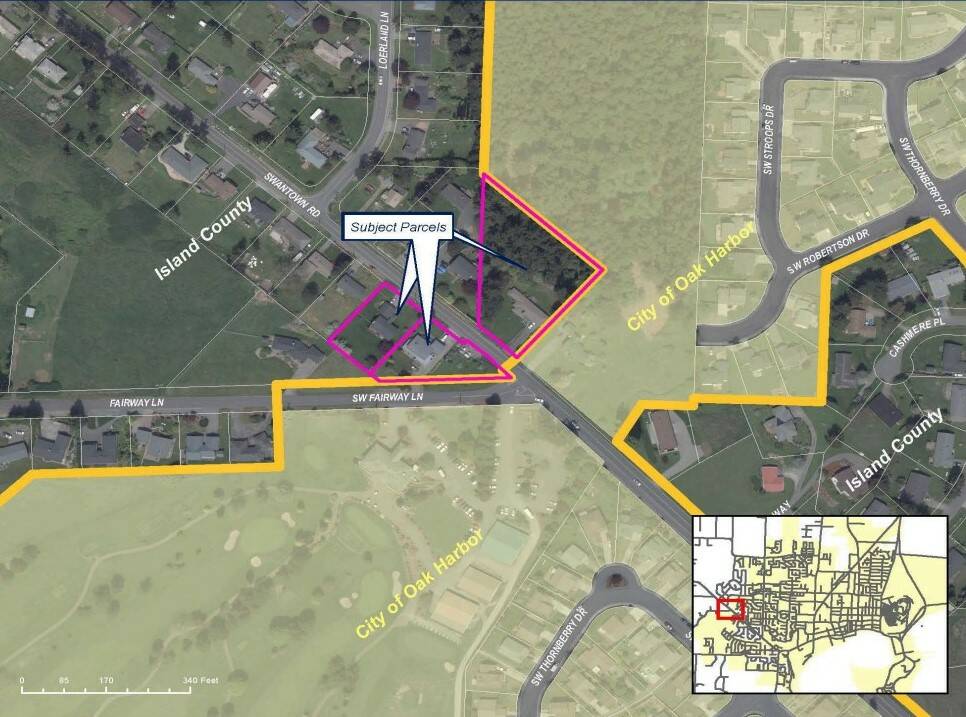Three more residential properties may move into the Oak Harbor city limits soon.
During a meeting on Dec. 5, the Oak Harbor City Council unanimously voted to accept a request for annexation submitted by a small group of neighbors on Swantown Road. However, the decision is not final, as the city needs to conduct more assessments.
Jacob Smith, who owns a property on 1311 Swantown Road with Stephanie Smith, sent a letter to Mayor Robert Severns formally requesting his property to be annexed into the city.
According to Jacob Smith, the soil in the area is unfit for septic drain fields, and other neighbors have had to conduct repair work or have properties at risk of failing. Blair Atwell — Stephanie Smith’s father — said during the meeting that the soil has failed twice and the city planner told the Smiths they would have to conduct work on the property that would cost them between $25,000 and $30,000. Atwell said this is an excessive cost, considering that the soil is expected to fail anyway.
Through annexation, the Smiths would connect to the city’s sewer and water. Jacob Smith wrote it would be easy to have the sewer and water lines hooked up as the property is near a country club and a new neighborhood that, he wrote, are both on the city’s sewer and water systems.
At the same time, Harold and Debbie Kirkendall are neighbors who own the properties at 1298 and 1307 Swantown Road. According to information provided in the Dec. 5 meeting agenda, they submitted a request for annexation in March 2022. One of these properties, which is contiguous to the city, shares a border with the Smiths, whose property is not contiguous to city limits.
In order to be annexed, a property needs to be adjacent to the city. Furthermore, according to information provided in the agenda, the Kirkendalls have yet to submit a petition and other annexation documents before they can be annexed.
Principal Planner Cac Kamak’s solution for these neighbors was to combine the three properties in the annexation process.
According to Kamak, the state allows the city to geographically modify the area. The city can also decide to request zoning with annexation and whether the property should share the cost of current or future bonds with other city taxpayers.
Once annexed, the properties in the petition will be zoned as low density residential, according to the agenda.
The agenda included a reminder that every annexation leads to an increased demand for protection from the city’s police and fire departments. However, more areas could be served by investing in a new fire station as the city keeps growing.
By giving its unanimous approval, the council allowed the Smiths and the Kirkendalls to circulate a joint annexation petition for signatories representing at least 60% of the assessed value of the proposed annexation area. This would also allow these homeowners to share annexation costs.
Councilmember Beth Munns said the decision to annex the properties is logical.
“This isn’t a final vote, but I hate to see people be in trouble,” Munns said. “I definitely want to see this move forward.”



